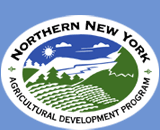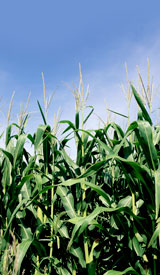February 22, 2008
Contact: Michael E. Hunter, Cornell Cooperative Extension (CCE) of
Jefferson County, 315-788-8450; Joe Lawrence, CCE of Lewis County,
315-376-5270
Cornell Insect Specialist Will Report Success with Alfalfa Snout
Beetle March 12-13
Seventy-years ago Alfalfa Snout Beetle (ASB) was identified as a crop
pest in New York State, likely arriving aboard sailing ships docking at
Oswego, NY. Since then, the insect has marched � it migrates by walking
� and eaten its way across Northern New York alfalfa fields, sometimes
destroying a crop in a single year and dramatically reducing milk
production on affected dairy farms. Currently, alfalfa snout beetle has
infested nine New York counties. But don�t despair. At the March 12-13,
2008 Crop Congresses in Madrid, NY, and Carthage, NY, Cornell University
Professor of Entomology Dr. Elson J. Shields will report the first
success of controlling Alfalfa Snout Beetle (ASB).
Dr. Shields says, �Researchers in New York have been working since 1989
to develop strategies to effectively manage Alfalfa Snout Beetle. I am
more than pleased to report that we have seen our first success in the
fields of the John Peck dairy farm at Great Bend, NY.�
At the Crop Congresses, Shields will talk about the combination of two
species of entomopathogenic (insect-killing) nematodes that appears to
have caused a collapse of ASB populations to manageable levels at the
Peck farm.
The Northern New York Agricultural Development Program has announced
funding to continue research in 2008 on the use of biological controls
and to continue the work of Cornell plant breeder Dr. Donald Viands who
is developing ASB-resistant varieties of alfalfa.
At the March Crop Congresses, Shields will focus his presentation on the
progress of research using nematodes to control alfalfa snout beetle and
on a joint effort between Viands� Cornell Forage Breeding Project and
Shields� Alfalfa Snout Beetle Research group to develop ASB-resistant
alfalfa. With funding from the New York Farm Viability Institute,
Shields will work with producers within the ASB-infested counties to
establish the biocontrol nematodes on infested farms.
Michael E. Hunter, field crops educator with Cornell Cooperative
Extension of Jefferson County, says, �The March Crop Congresses are an
opportunity for North Country farmers to use the latest research to plan
their pest management programs for the 2008 growing season. Selecting
the best control measures for your farm can positively impact crop
yields and quality.�
Also on the Crop Congresses� agenda are presentations by Cornell
University Professor of Plant Pathology Gary C. Bergstrom on dealing
with field crop diseases, including brown root rot that affects alfalfa
and forage grasses; and by Cornell weed scientist Dr. Russell Hahn on
new herbicides and weed management for field crops. Hunter and Cornell
Cooperative Extension Field Crop Educators Joe Lawrence of Lewis County
and Peter Barney of St. Lawrence County will provide North Country Field
Crop Research updates.
The registration fee for the 10 am to 3 pm Crop Congresses on March 12
at the Madrid Community Center and March 13 at the Carthage Elks Club is
$15 by March 7; $20 after; with lunch included. Register with Cornell
Cooperative Extension in Jefferson County at 315-788-8450 or in St.
Lawrence County at 315-379-9192.
# # #



